
Are you looking for free Google Keyword Tool Alternatives? Whether you are a blogger or an author, or both, you continuously need to research and select suitable keywords for your blog or books.
While the Google Keyword Tool is the choice of many, you need to have an Adwords account to use it.
But Google Adwords is for advertisers who use it to assign keywords to the Google Keyword Planner for their campaign ad groups.
If you are an author and blogger, going through all the trouble of signing up for an account, including your billing information, is not worth the effort.
Start your keyword search with Google

There are many free Google keyword research tool alternatives that you can use to find keywords for the articles you write.
Or for the Amazon keywords, you need to add them to your books and Kindle ebooks when you publish.
Authors should continue to research Kindle keywords even after they have published their books.
It is because improving them can help increase sales.
You can use Google Search to find associated keywords to help you with your search engine optimization (SEO).
All you need to do is type in your search term and hit enter.
But it really only shows you the number of results.

But there’s more you can do with Google Search.
Finding keywords with Google
Using Google is the quickest and easiest way to find new keyword ideas.
Enter your keyword idea, then scroll down to the bottom of the page below the search results.
You will find a short list of keywords that are associated with or related to your seed keyword.
These suggestions are really little gold nuggets.
Take note of the best ideas.
Now you can start to build a list of new keywords and keyword phrases from the suggestions.
But don’t stop there.
When you click one of the suggestions, you will get eight more related long-tail keywords.
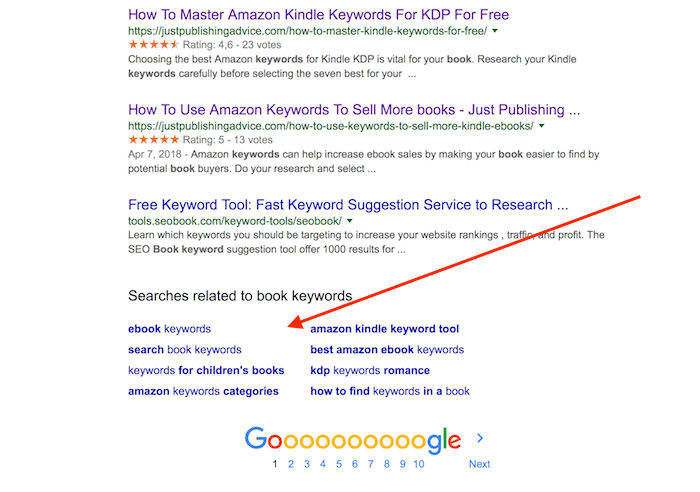
You can repeat the process over and over again.
It doesn’t take long to collect quite a long list of potential keywords to help you with your research.
When you find keywords that will potentially help your book, keep them in a spreadsheet.
Then you can refer back and sort through the best candidates.
Now let’s look at more ways to do your research.
Amazon Kindle keyword search
For authors, you can do a similar search for Amazon keyword phrases.
But it works a little differently than Google.
You need to start by going to Books and then typing a word in the search bar.
As you type, a list of phrases that have been used by Amazon shoppers will appear.
You are limited to ten results.
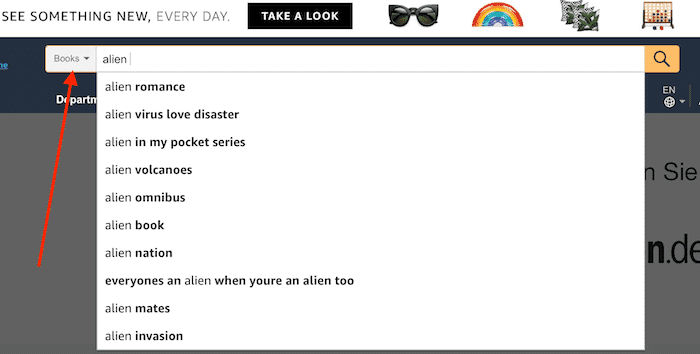
You should do the same again, but this time, select the Kindle store in the search field.

By using Google and Amazon, you can put together a solid list of solid keyword suggestions.
The advantage is that you know that real people used these search terms.
Ahrefs Free Amazon Keyword Tool
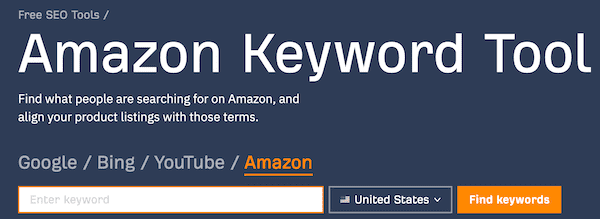
Amazon is probably the best free Publisher Rocket alternative, but you could also try Ahrefs. With the free version of Ahrefs, you get a generous list of keyword suggestions for Amazon.
It’s a great free tool for keyword research.
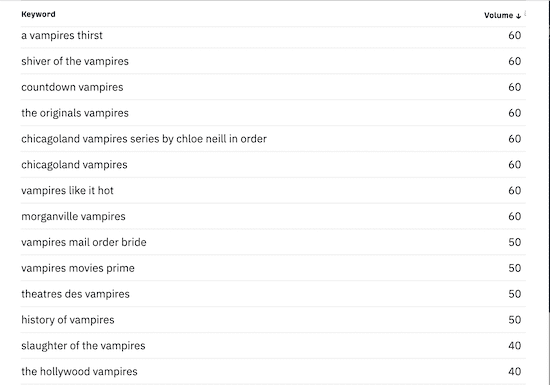
If you are looking for a Publisher Rocket alternative for free, Ahrefs is certainly worth a try.
However, there are many more tools you can use for almost any type of keyword research for your blog posts or your books.
6 Free Google keyword tool alternatives
1. Ubersuggest
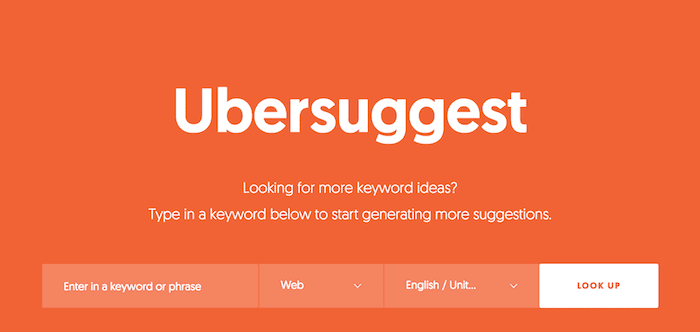
Ubersuggest is a fantastic free keyword tool.
It uses data from Google Keyword Planner and Google Suggest to give you hundreds of terrific keyword suggestions.
For each word, it gives you search volume, cost per click, and keyword competition.
I used the word roses for my seed keyword, and here is a scrolling list of only some of the results. It returned 798 in total.

Then if you hover over the small graph icons, there is even more information.
The first graph gives you the number of average monthly searches.
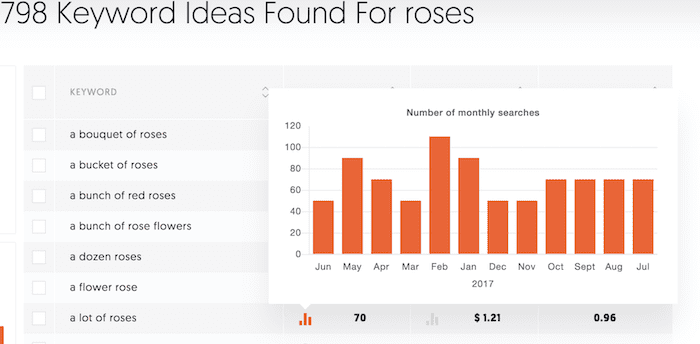
The second graph gives you the number of clicks.
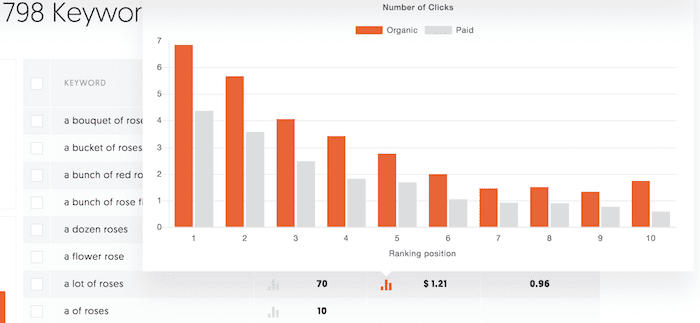
If you are looking for keyword planner alternatives, that is a lot of data from a free keyword tool.
Update: Ubersuggest has changed a lot since it was acquired by Neil Patel and is now much more than just keywords.
It is now a free SEO management tool that includes a site audit, your backlinks, and ranking keywords.
It uses data from Google Search Console as well as its own scrapers. Ubersuggest is a great free alternative to paid programs such as Semrush or Ahref keyword tools.
2. Ahrefs free Keyword Generator

Ahrefs keyword generator is a quick and easy-to-use free keyword search tool.
There’s nothing fancy. But you get a solid list of great long-tail keyword ideas.
Ahrefs is well-known for all its SEO tools, which are usually only available to premium users.
But it has opened up some tools for free, such as this one.
If you are hunting for a usable free Google keyword tool, I’d certainly add this one to your list.
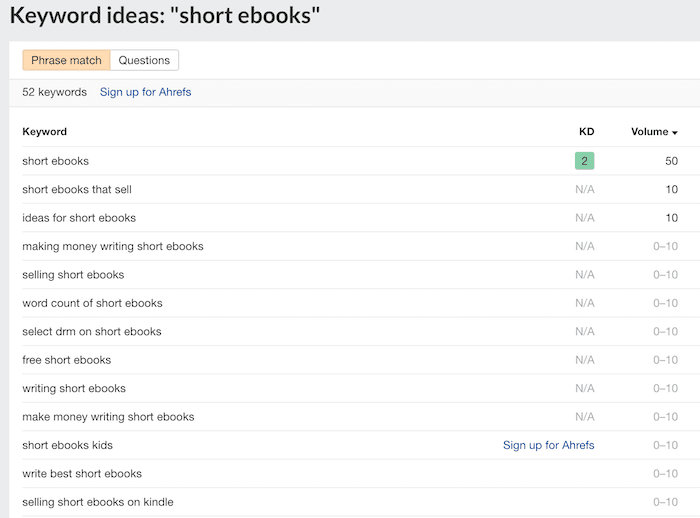
3. Keyword Tools
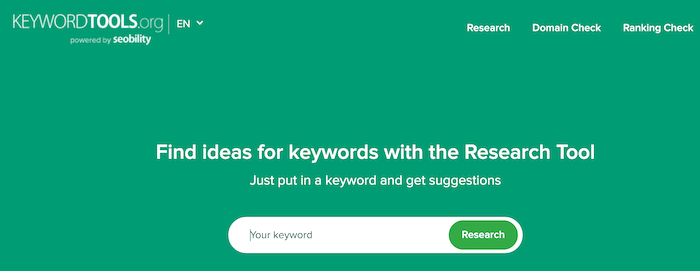
Keyword Tools is simple to use keyword search tool.
Simply enter your seed keyword, and you’ll get a good number of suggestions.
The one advantage this tool has is that it can find longer keyword phrases than other tools.
It’s certainly worth a try.
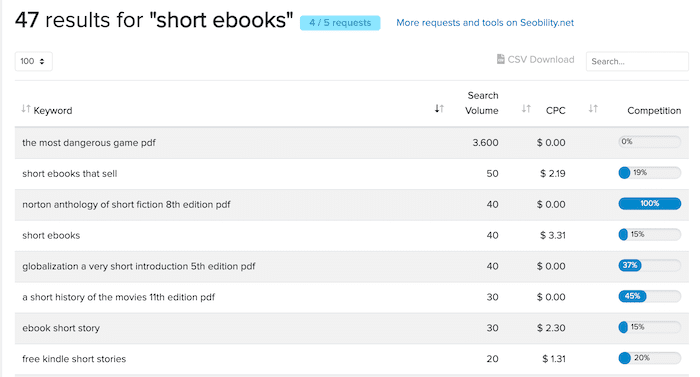
4. Keyword Tool Dominator
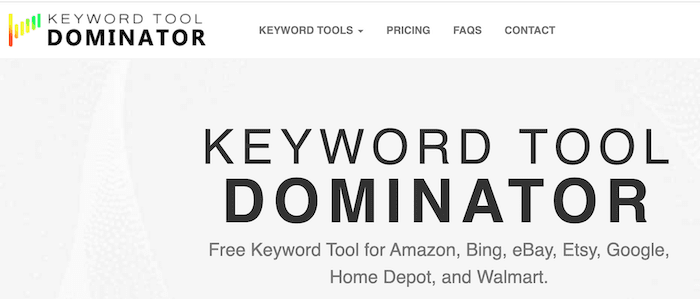
Keyword Tool Dominator certainly packs a punch.
You can search for keywords on Google, Amazon, Bing, Youtube, and more.
This tool is really value plus for free.
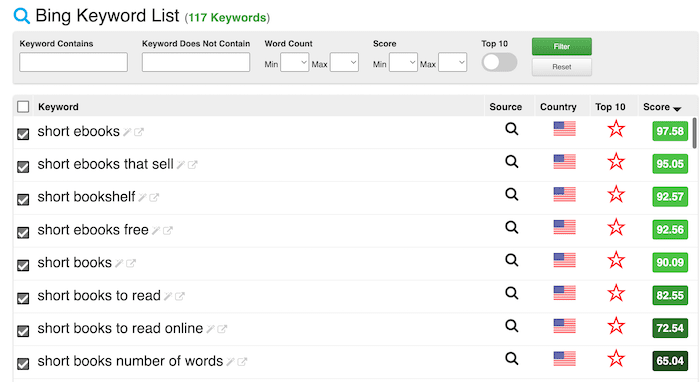
5. Soolve

Soolve is a fun way to search for keywords.
It is a keyword search tool, free of course, that looks like Google, but it finds words from lots of different places.
Again, there is Amazon but also Wikipedia, Answers, and Bing.
Just add your word and let it populate each source.
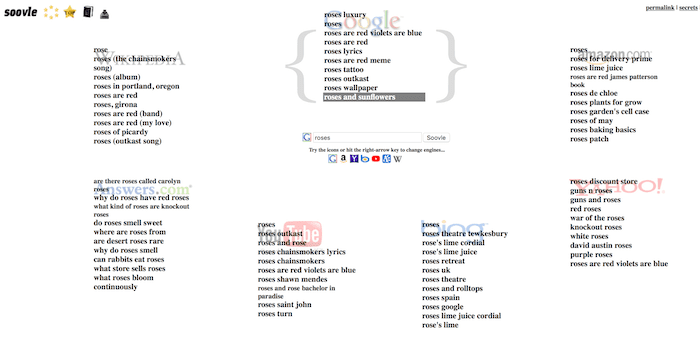
6. Google Trends
Google Trends is very popular and is most useful for finding current trending search phrases that were used to answer the public.
It is free, and there is no limit on the number of searches you can do.
The results are separated into two categories. Related topics and related queries. Both can give you some good ideas for keywords.
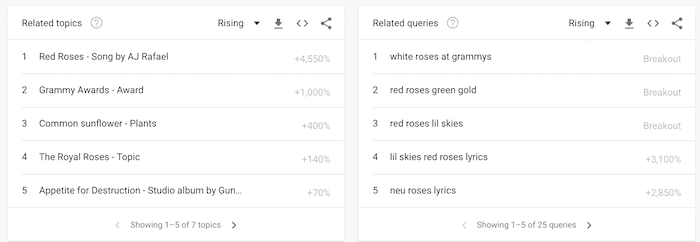
Pro-level Amazon keyword research for authors
Do you have a lot of books on Amazon KDP?
When you want to fast-track and refine your keyword research with real-time Amazon data, you might want to investigate Publisher Rocket.
It is a premium pro tool to help you find and select the best Amazon book keywords and categories.
You can access the entire real-time Amazon database to find the best seven keywords and two book categories for all your titles.
It also gives you access to competition analysis and daily and monthly sales.
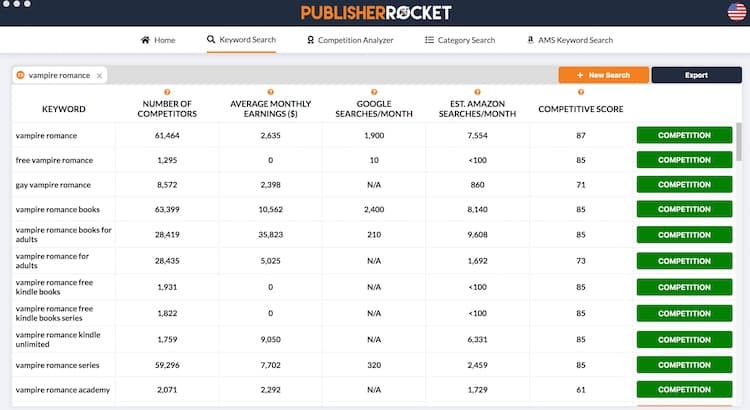
Publisher Rocket Pros and Cons
Before you consider buying Publisher Rocket*, here are some of the main advantages and disadvantages.
Pros
Gives you full access to Amazon books, ebooks, and audiobook data.
Very easy to learn how to use for keyword and category research.
One-time payment, not an annual subscription.
Regular free updates.
Cons
No free trial version. (Only a 30-day refund).
Extra clicks are required to load full keyword data.
Data is only available from Amazon US, UK, and DE.
No Linux version. PC and macOS only.
Read our full review of Publisher Rocket for more details.
*This article contains affiliate links. If you use these links to buy a product or service we may earn a commission.
Summary
If you are an author and you always need to add or improve your seven Amazon book keywords.
You could consider adding the free tools I have listed above to your bookmarks to help you.
They will help you find better words and phrases that are vital in helping book buyers find your books using Amazon search.
If you are blogging a few times a month, using these tools will also help your articles to rank much better.
It takes away a bit of the guesswork in trying to find a logical search phrase to add to your title and meta description.
Related reading: Amazon Search Results For Books Guide For New KDP Authors


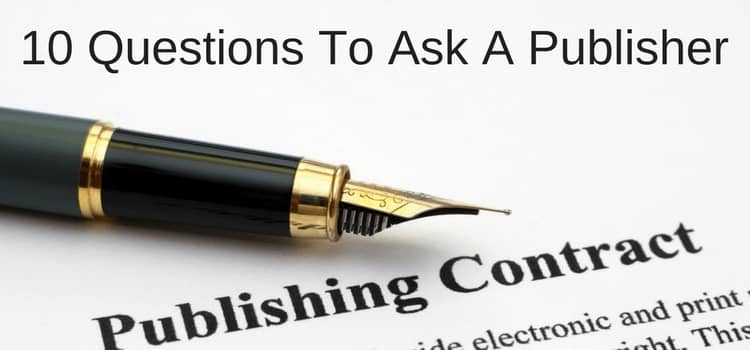
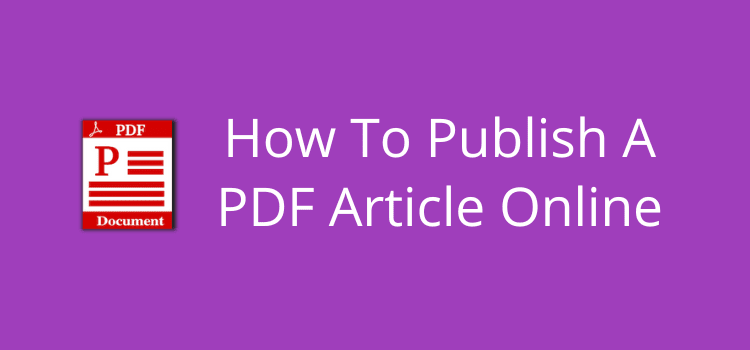

Thanks such a nice article. I have saved all important points and will do as written. Sooooooper.
Great article! I’m bookmarking this.
Fantastic advice. Thank you! Bookmarking.
Very helpful, Derek. I’m saving this one for future reference. :-)
Thanks for sharing. I never really thought about keywords to increase traffic for my blog, but you got me thinking :-)
Ubersuggest is one of the very best, aside Google suggest of course